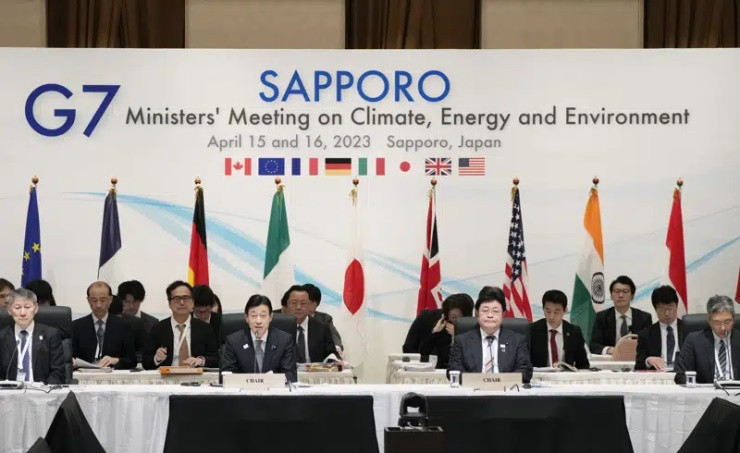Japan’s economy and trade minister, Yasutoshi Nishimura said on Saturday that members of the Group of Seven rich nations must act to help emerging countries reduce emissions, including the financing of decarbonisation in “hard-to-abate” industries.
Ministers from the G7 are meeting for climate and energy talks in the Japan’s northern city of Sapporo on Saturday and Sunday, as part of Japan’s G7 presidency this year.
“We, the G7, need to not only reduce our own emissions, but also take concrete actions to achieve emission reductions globally,” Nishimura said in opening remarks for the environment and energy meeting, adding that this included countries in the “Global South”.
Read also: Climate adviser warns lack of NI government puts net zero targets at risk
Nishimura said ministers would like to discuss ways of financing the reduction of carbon in industries such as chemicals, shipping and steel while the latest draft communique seen by reporters showed the growing importance of critical minerals for the clean energy transition and the need to prevent economic and security risks caused by vulnerable supply chains and monopolization, among other topics, would be discussed alongside it.
The world’s richest countries need to do more to help emerging nations reduce carbon which has been an outstanding issue for them as emerging markets, said Alden Meyer, a senior associate at E3G, a climate change think tank.
“There’s a responsibility for the G7 and other developed countries to provide finance and to mobilise private finance as well to help the decarbonisation of the developing countries,” Meyer was quoted as saying at a briefing ahead of the start of the G7 meeting.
There needs to be “much stronger leadership” from G7 countries in leveraging financial and technology resources to help developing countries reduce emissions, Meyer said.
Story was adapted from Reuters.
